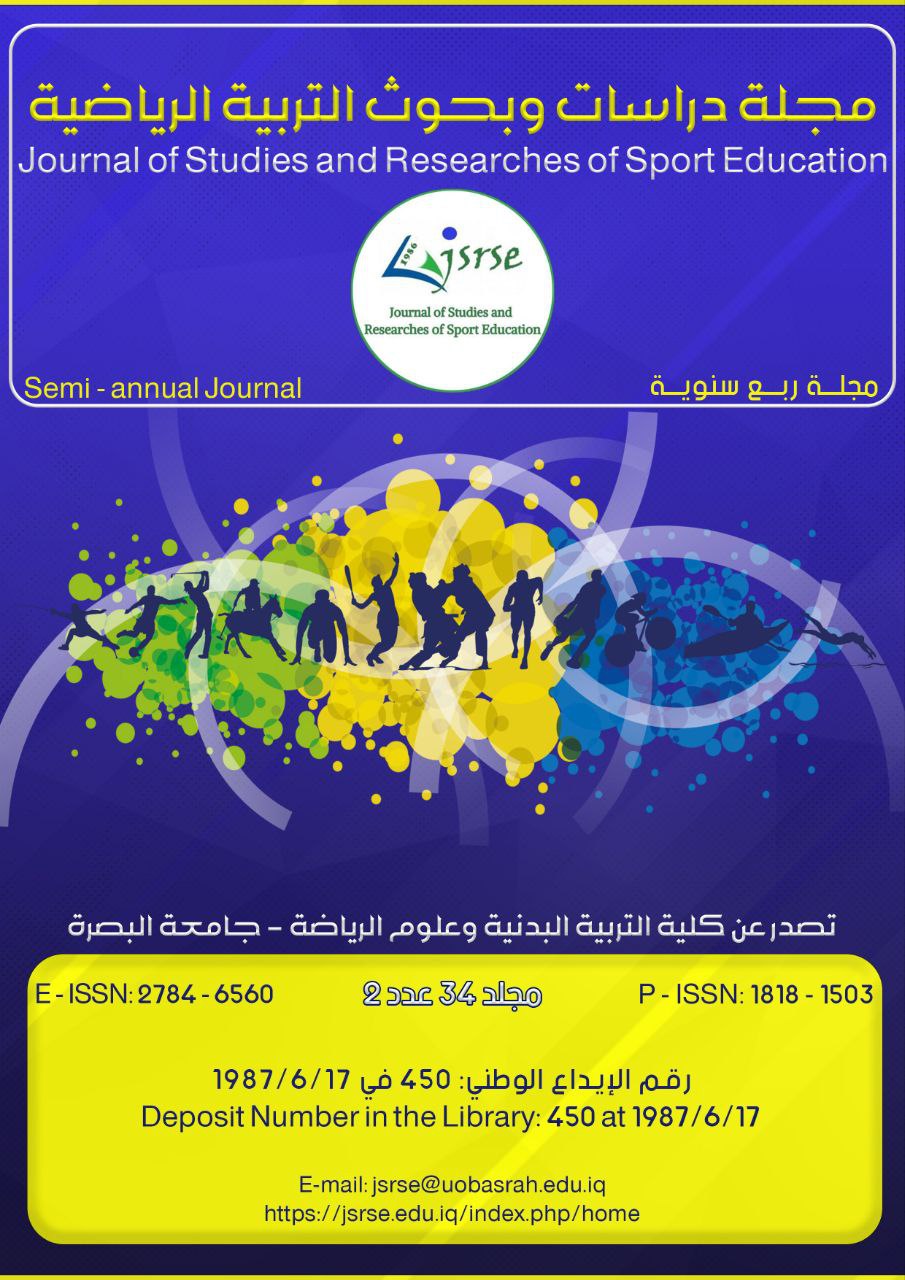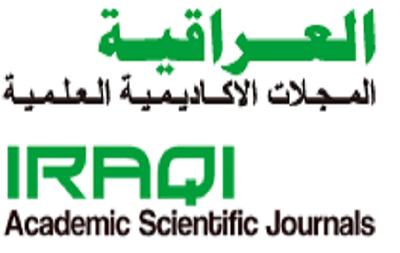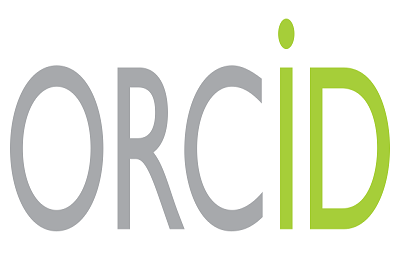Adaptive Leadership Of Coaches And Its Relationship To The Well-Being Of Relationships Within The Nineveh Governorate Football Clubs From The Perspective Of Their Players
Main Article Content
Abstract
The research aimed to determine the nature and type of relationship between adaptive leadership among football coaches in Nineveh Governorate clubs and the well-being of relationships within these clubs, after measuring their level from the players’ point of view. The researcher used the descriptive approach in both survey and correlational methods. The researcher defined the research community as club players. Nineveh Governorate in football and participation in the Premier League and the First Division League organized by the Iraqi Central Football Federation, which numbered (12) clubs, while the number of community members reached (300) players. The main research sample included all members of the research community, and was divided into three. The categories are the exploratory study sample, which is (5) players, the statistical analysis sample, which is (177) players, and the final application sample, which is (118) players. To collect data, the researcher prepared two measurement tools, the first is a tool for measuring adaptive leadership among football coaches, and its number of items is (12). The second is a tool for measuring the well-being of relationships within football clubs, and it has (12) items. After processing the data statistically, the researcher reached a set of conclusions, including the relationship between the adaptive leadership of Nineveh Governorate football club coaches and the well-being of relationships within these clubs is characterized by positivity and morale.
Article Details

This work is licensed under a Creative Commons Attribution-NonCommercial 4.0 International License.
References
Aldewan, L. H., Mohammed, R., & AbdulQadir, A. (2015). Building and the application of a measure to evaluate the curriculum volleyball according to the overall quality from the standpoint of the teaching staff standards. Journal of Studies and Researches of Sport Education, 44, 21–45. https://www.iasj.net/iasj/article/108021
Alsaeed, R., Hassn, Y. , Alaboudi, W. , & Aldywan, L. (. (2023). Biomechanical analytical study of some obstacles affecting the development of football players. International Journal of Physical Education, Sports and Health, 10(23), 342–346. https://doi.org/10.22271/kheljournal.2023.v10.i3e.2967
Amal, K. M. (2022). The impact of the relationship between adaptive leadership and outstanding performance on entrepreneurial orientation. Journal of the College of Education for Girls for Humanities, 29(4), 467–482. https://www.iasj.net/iasj/article/231541
Daoud Zaki Daoud, S. (2022). Adaptive leadership and its impact on organizational integration and innovative behavior of employees during the Corona pandemic, an applied study. Scientific Journal of Business and Environmental Studies, 13(4), 477–546. https://doi.org/10.21608/jces.2022.279762
Firas, N. H., & Abbas, M. N. (2023). Adaptive leadership of premium class hotels and its impact on improving sustainable performance (( An exploratory study of a sample of premium class hotels in the city of Baghdad )). Journal of The Iraqi University, 58(2), 651–661. https://www.iasj.net/iasj/article/263507
Hussein BadrKhalaf, LAMYAA، HASAN MUHMMED AL-DEWAN, & THulfiqar، Saleh Abdul-Hussein. (2021). The impact of the Zahorek model on the development of students’ football dodge skill. Journal of Studies and Researches of Sport Education, 66, 173–185. https://www.iasj.net/iasj/article/213565
Intisar, A. O., Lamya، Hassan Mohammed, & sarah، Sami Shabib. (2023). The effect of Top Play and Top Sport cards using recreational games in developing children’s creative abilities. Journal of Studies and Researches of Sport Education, 33(2), 33–50. https://doi.org/10.55998/jsrse.v33i2.466
Lamia Hassan Mohamed, & ruaa Mohammed Aboud. (2015). The impact of a proposed curriculum lessons Educational motor using effective teaching In the development of creative thinking for the children of the preparatory stage. Journal of Studies and Researches of Sport Education, 42, 32–48. https://www.iasj.net/iasj/article/104025
Lamyaa Hasan Aldewan, Qusay Fawzi Khalaf, & Saad Laith Abdul Karim. (2008). Measuring the obstacles to the lack of female competencies taking over sports management. Journal of Studies and Researches of Sport Education, 23, 5–18. https://www.iasj.net/iasj/article/53818
MANDOOB, M., ABDALHALEEM, N., & YOUSIF, K. A. (2024). AN ANALYTICAL STUDY OF THE ORGANIZATIONAL CRISES FACING COACHES IN THE IRAQI FOOTBALL LEAGUE ANALYTICAL STUDY OF THE ORGANIZATIONAL CRISES FACING COACHES IN THE IRAQI FOOTBALL LEAGUE ANALYTICAL STUDY OF THE ORGANIZATIONAL CRISES FACING (Vol. 23). https://idpr.org.uk/index.php/idpr/article/view/135
Andrew R. Casiello. (2020). Adaptive Leadership Approaches in Online Education: a Study of Trust Creation and Change Management in Higher Education. Educational Foundations & Leadership, 5(3), 248–253. https://doi.org/10.25777/1hyw-x597
Bagwell, J. (2020). Leading Through a Pandemic: Adaptive Leadership and Purposeful Action. Journal of School Administration Research and Development, 5(S1), 30–34. https://doi.org/10.32674/jsard.v5is1.2781
Dorais, S., Niles, J., Dukes, A. T., Colon, M. L., & Gutierrez, D. (2022). Does contemplative pedagogy increase relational well-being? A time series analysis. Counselor Education and Supervision, 61(3), 293–307. https://doi.org/10.1002/ceas.12244
Guerci, M., Hauff, S., & Gilardi, S. (2022). High performance work practices and their associations with health, happiness and relational well-being: are there any tradeoffs? International Journal of Human Resource Management, 33(2), 329–359. https://doi.org/10.1080/09585192.2019.1695647
Hernández-santiago, N., & Pérez-rivera, M. (2021). Adaptive leadership as a method to overcome organizational crisis: a Puerto Rican study. Forum Empresarial, 26(2), 98–115.
Kane, R. L., Egan, J. M., & Chung, K. C. (2021). Leadership in Times of Crisis. Plastic and Reconstructive Surgery, 148(4), 899–906. https://doi.org/10.1097/PRS.0000000000008357
McDaniel, B. T., & Drouin, M. (2019). Daily technology interruptions and emotional and relational well-being. Computers in Human Behavior, 99, 1–8. https://doi.org/10.1016/j.chb.2019.04.027
Molgora, S., Baldini, M. P., Tamanza, G., Somigliana, E., & Saita, E. (2020). Individual and Relational Well-Being at the Start of an ART Treatment: A Focus on Partners’ Gender Differences. Frontiers in Psychology, 11(September), 1–10. https://doi.org/10.3389/fpsyg.2020.02027
Rillo-Albert, A., Lavega-Burgués, P., Prat, Q., Costes, A., Muñoz-Arroyave, V., & Sáez de Ocáriz, U. (2021). The transformation of conflicts into relational well-being in physical education: GIAM model. International Journal of Environmental Research and Public Health, 18(3), 1–20. https://doi.org/10.3390/ijerph18031071
Seibel, M., Kaufman, E. K., Cletzer, D. A., & Elliott‐Engel, J. (2023). Advancing Adaptive Leadership Through Adaption‐Innovation Theory: Enhancements to The Holding Environment. Journal of Leadership Studies, 17(1), 23–29. https://doi.org/10.1002/jls.21841
solomon, kefale. (2021). enter The Effects of Adaptive Leadership on Organizational Effectiveness at Public Higher Education Institutions of EthiopiaPaper Title. SSRN Electronic Journal, 10, 141–159. https://doi.org/10.2139/ssrn.3933030
Sparks, B., Zidenberg, A. M., & Olver, M. E. (2023). An Exploratory Study of Incels’ Dating App Experiences, Mental Health, and Relational Well-Being. Journal of Sex Research, 00(00), 1–12. https://doi.org/10.1080/00224499.2023.2249775
van der Mark, E. J., Zuiderent-Jerak, T., Dedding, C. W. M., Conradie, I. M., & Broerse, J. E. W. (2023). Connecting relational wellbeing and participatory action research: reflections on ‘unlikely’ transformations among women caring for disabled children in South Africa. Journal of Global Ethics, 19(1), 80–104. https://doi.org/10.1080/17449626.2023.2186468
White, S. C. (2017). Relational wellbeing: re-centring the politics of happiness, policy and the self. Policy & Politics, 45(2), 121–136. https://doi.org/10.1332/030557317X14866576265970
Yoo, J., Miyamoto, Y., Evers, U., Lee, J., & Wong, N. (2021). Does Materialism Hinder Relational Well-Being? The Role of Culture and Social Motives. Journal of Happiness Studies, 22(1), 241–261. https://doi.org/10.1007/s10902-020-00227-7





 IASJ
IASJ CC-BY-4.0
CC-BY-4.0 turnitin
turnitin ISSN
ISSN DOAJ
DOAJ Crossref
Crossref GoogleScholar
GoogleScholar Orcid
Orcid